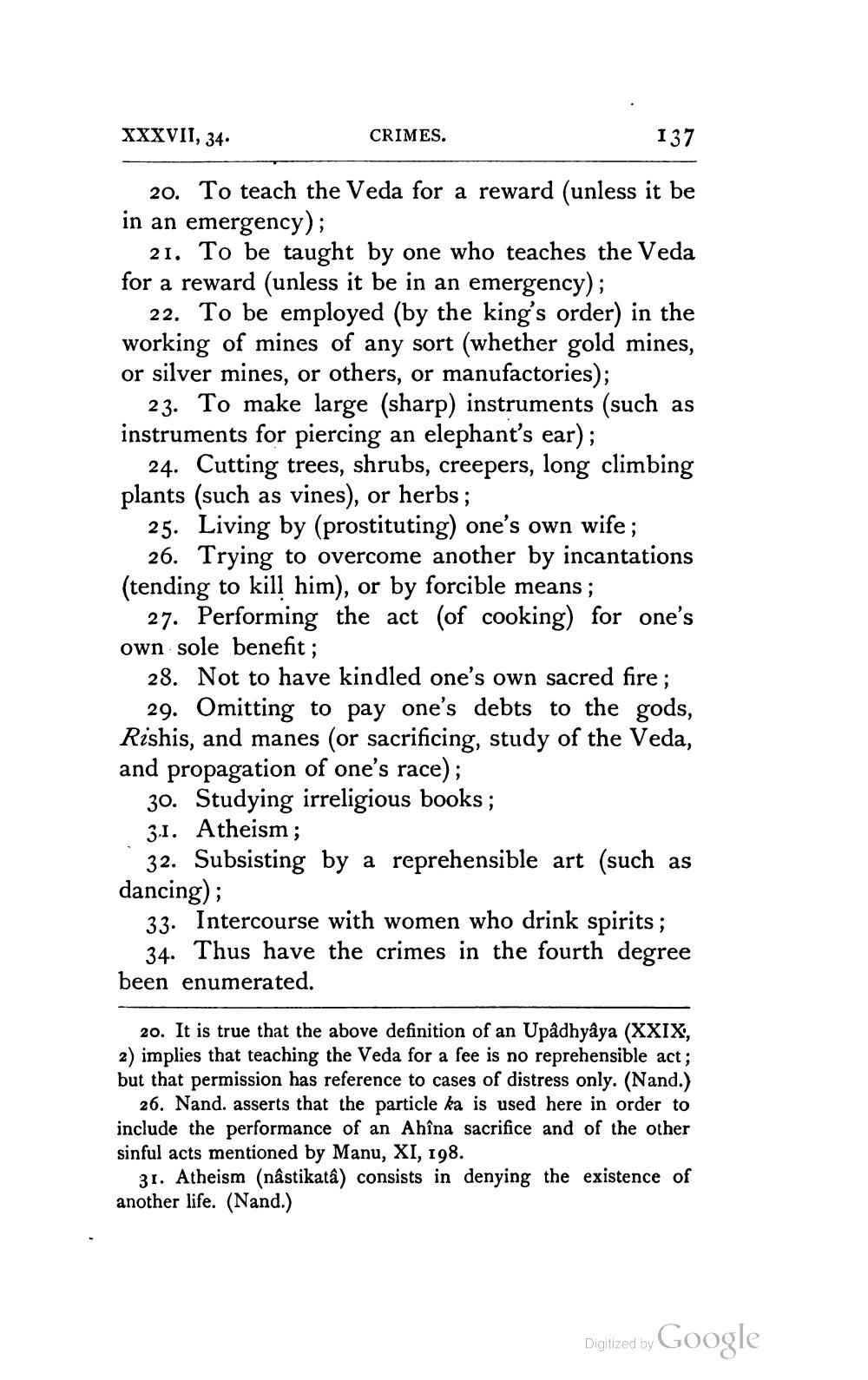________________
XXXVII, 34.
CRIMES.
137
20. To teach the Veda for a reward (unless it be in an emergency);
21. To be taught by one who teaches the Veda for a reward (unless it be in an emergency);
22. To be employed (by the king's order) in the working of mines of any sort (whether gold mines, or silver mines, or others, or manufactories);
23. To make large (sharp) instruments (such as instruments for piercing an elephant's ear);
24. Cutting trees, shrubs, creepers, long climbing plants (such as vines), or herbs;
25. Living by (prostituting) one's own wife;
26. Trying to overcome another by incantations (tending to kill him), or by forcible means;
27. Performing the act (of cooking) for one's own sole benefit ;
28. Not to have kindled one's own sacred fire ;
29. Omitting to pay one's debts to the gods, Rishis, and manes (or sacrificing, study of the Veda, and propagation of one's race);
30. Studying irreligious books ; 3.1. Atheism;
32. Subsisting by a reprehensible art (such as dancing);
33. Intercourse with women who drink spirits;
34. Thus have the crimes in the fourth degree been enumerated.
20. It is true that the above definition of an Upadhyâya (XXIX, 2) implies that teaching the Veda for a fee is no reprehensible act; but that permission has reference to cases of distress only. (Nand.)
26. Nand. asserts that the particle ka is used here in order to include the performance of an Ahîna sacrifice and of the other sinful acts mentioned by Manu, XI, 198.
31. Atheism (nâstikata) consists in denying the existence of another life. (Nand.)
Digitized by Google




